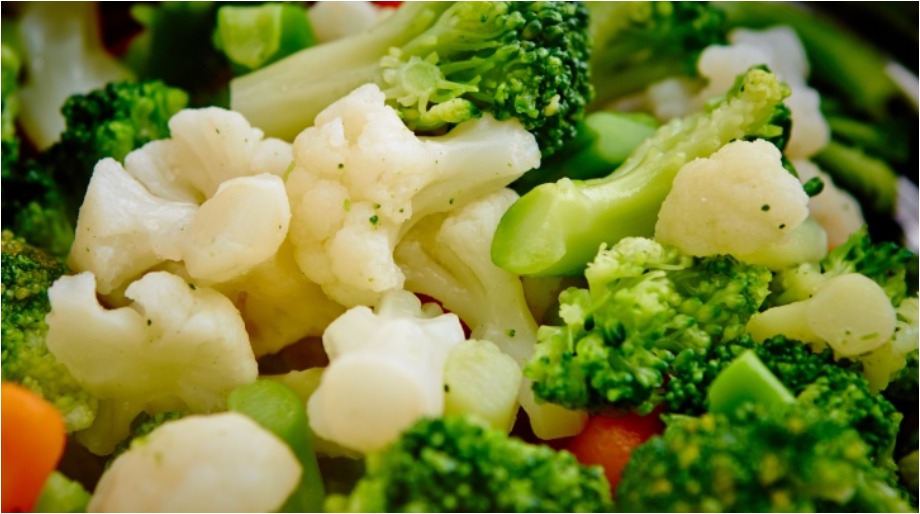
Fruits and vegetables are excellent choices for promoting gastrointestinal health due to their high fiber content, water content, and various beneficial nutrients. Here’s how these foods contribute to gastrointestinal health:
- Dietary Fiber: Fruits and vegetables are rich sources of dietary fiber, both soluble and insoluble. Soluble fiber, found in fruits like apples, citrus fruits, and vegetables like carrots, helps form a gel-like substance in the digestive tract, which can aid in slowing down digestion and promoting a feeling of fullness. Insoluble fiber, present in vegetables like broccoli, cauliflower, and leafy greens, adds bulk to stool and helps facilitate regular bowel movements. Adequate fiber intake supports digestive regularity and helps prevent constipation.
- Hydration: Many fruits and vegetables have high water content, contributing to overall hydration. Proper hydration is essential for healthy digestion and helps maintain the moisture in the intestines, promoting smooth passage of stool and preventing constipation.
- Digestive Enzymes: Some fruits like pineapple and papaya contain natural digestive enzymes, such as bromelain and papain, respectively. These enzymes can aid in breaking down food and improve digestion.
- Vitamins and Minerals: Fruits and vegetables are abundant sources of vitamins and minerals that support gastrointestinal health. For example, vitamin C found in citrus fruits can promote the healing of the gut lining, while vitamin A from carrots and sweet potatoes can help maintain the integrity of mucous membranes in the digestive tract.
- Prebiotic Fibers: Certain fibers in fruits and vegetables are classified as prebiotics. Prebiotics are non-digestible substances that provide nourishment to beneficial gut bacteria, promoting their growth and activity. By supporting a healthy gut microbiome, prebiotic fibers contribute to better digestion and overall gastrointestinal health.
- Antioxidants and Phytochemicals: Fruits and vegetables contain a wide range of antioxidants and phytochemicals with anti-inflammatory properties. These compounds help reduce inflammation in the gastrointestinal tract and support gut health.
- Alleviating Digestive Discomfort: Fruits like bananas and applesauce and cooked vegetables can be beneficial during episodes of digestive discomfort, as they are easier to digest and less likely to irritate the gastrointestinal tract.
- Stomach Acid Regulation: Certain fruits like papaya and vegetables like cabbage may have a mild protective effect on the stomach lining, potentially supporting stomach acid regulation and reducing the risk of acid-related discomfort.
- Weight Management: Including a variety of fruits and vegetables in the diet can help with weight management, as they are nutrient-dense and generally lower in calories. Maintaining a healthy weight is associated with better digestive health.
It’s important to consume a diverse range of fruits and vegetables to ensure you benefit from their various nutrients and health-promoting properties. Additionally, if you have specific gastrointestinal concerns or conditions, working with a registered dietitian or healthcare professional can provide personalized dietary advice to support your gastrointestinal health.
